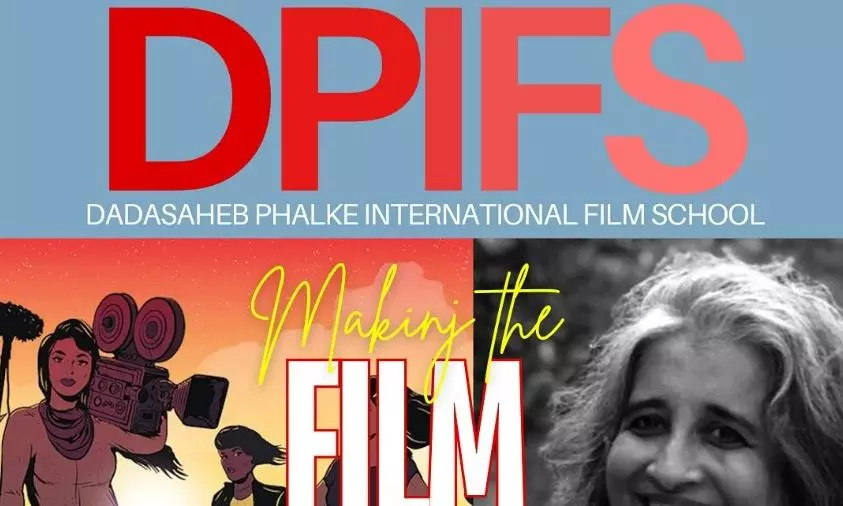Batul Mukhtiar advocates women's safety on film sets after Hema Committee report

Batul Mukhtiar advocates women's safety on film sets after Hema Committee report
In light of recent discussions sparked by the Hema Committee Report on the Kerala film industry, which highlighted the importance of women's safety in the workplace, MIT-World Peace University's Dadasaheb Phalke International Film School (DPIFS) organized a special workshop on "Making the Film Set Safe for Women." The workshop was conducted by National Award-winning director and filmmaker Batul Mukhtiar.
During the workshop, the prolific filmmaker interacted with students and discussed the safety concerns, gender sensitization, and challenges faced by women in the film industry, offering insights into best practices for creating gender-sensitive spaces on film sets.
Addressing the topic of gender sensitization and how it has evolved over time, she said during the workshop, "Gender discrimination and challenges are faced on a day-to-day basis, particularly in the film industry. There is a deep-rooted prejudice in society, where women are often left to ensure their own safety. When women joined the industry around 20-30 years ago, such conversations weren't even considered. We took it for granted that there would be discrimination. We would face it, manage it, and find our way around it. Most of the time, we were not allowed to talk about what should rightfully be ours."
On being asked about the outcomes of movements like #MeToo and the recent Hema Committee report, the filmmaker said, "The good thing that came from #MeToo and the recent case in Kerala, where an actress came forward about what happened to her involving a prominent actor, is the formation of the Hema Committee to look into the working conditions of women in the film industry. The positive outcome is that this committee and women in cinema have started to look into the conditions and other related factors.”
“A lot of things need to be put into place, like the Hema Committee and the Women in Cinema Collective, to push production houses, colleges, and institutes to implement practices like gender sensitization, internal committees, and intimacy coordinators on sets. When organizations push for these changes, they become possible."
During the workshop, the filmmaker also shed light on the trends and changes happening in female representation in the industry, such as increased awareness that women, trans, and queer communities need to be represented more. "There is a change in stories, but there is still a long way to go. More female directors are getting opportunities, but it is still far less than what it should be," she added.
The workshop focused on measures that can be taken to ensure a more secure and inclusive working environment for women in the film industry, while also offering insights into best practices for creating gender-sensitive spaces on film sets. By holding workshops on such important issues, MIT World Peace University aims to empower the next generation of filmmakers to lead positive change.
ABOUT MIT-WPU
MIT World Peace University (MIT-WPU), Pune, is a prestigious world-class institution of higher education in India, embodying a distinguished legacy of 40+ years and committed to nurturing academic excellence. With an expansive global alumni network exceeding 1,00,000 accomplished professionals, MIT-WPU consistently demonstrates exceptional educational achievements. The university remains at the forefront of academic innovation, offering a comprehensive study of over 150 undergraduate and postgraduate programmes, each meticulously crafted to blend theoretical foundations with practical application.
Embracing an educational philosophy centred on experiential learning, MIT-WPU empowers students to transition knowledge into tangible skills for the real world seamlessly. This ethos is further reinforced through immersive internships and invaluable mentorship opportunities, catalysing profound personal and professional development.
We envision a future powered by education, innovation, and culture, one that is sustainable, inclusive, and fosters progressive societal transformation ("Powering The Future"). To achieve this, we cultivate a culture of excellence with three pillars: fostering exemplary leadership, prioritising empathy and improving the present for all, and emphasising interdisciplinary collaboration in our educational approach. Ultimately, we believe that true global peace and harmony can be reached through the concordant integration of Science and Spirituality.
( Source : Deccan Chronicle )
Next Story

